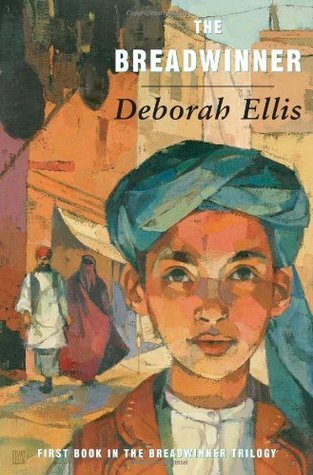Foreword
byForeword: In the foreword of The Breadwinner, Deborah Ellis delves into the extensive history of conflict in Afghanistan, spanning more than thirty-six years since the Soviet Union’s invasion. This period includes the chaos that followed the Soviet departure, the rise of the Taliban, and the dramatic aftermath of the September 11 events. Ellis draws attention to the far-reaching consequences of these conflicts, noting how decisions made by those in positions of safety often lead to catastrophic results for innocent people in Afghanistan. The book emphasizes the human cost of war, focusing on how the people caught in its path, especially in Afghanistan, suffer the most. These individuals, often removed from the decision-making processes, are forced to endure hardships that stem from global conflicts far beyond their control.
Ellis highlights the often-overlooked role of profit-driven individuals or organizations that fuel wars by manufacturing weapons and encouraging violence rather than seeking peaceful solutions. She critiques the decision-makers who contribute to wars without understanding their devastating effects on the innocent, particularly the civilians caught in the crossfire. Through The Breadwinner, Ellis paints a picture of the harsh realities that those living in war-torn regions experience daily: the destruction of communities, the loss of infrastructure, and the ongoing struggle of refugees who have no access to life’s most basic needs, such as food and shelter. These victims of war, forced to live without the essentials, are frequently overlooked or forgotten, and their suffering is a testament to the devastating impact of prolonged conflict on everyday lives.
In contrast to the despair that war brings, Ellis also introduces the stories of ordinary people who embody resilience and hope. She recounts her encounters with teachers, health workers, librarians, and other unsung heroes who continue to serve their communities despite the overwhelming challenges around them. These individuals, who refuse to be beaten down by war, work tirelessly to nurture children, rebuild communities, and maintain some semblance of normalcy in their lives. Their acts of kindness serve as powerful reminders of the strength of the human spirit, even when faced with seemingly insurmountable obstacles. Through these stories, Ellis underscores the importance of hope and humanity in the darkest of times, offering readers an inspiring counterpoint to the grim realities of war.
Ellis also brings to light the devastating statistic that ninety-five percent of those killed in wars are civilians, urging readers to recognize the humanity of those who bear the brunt of conflict. The victims of war are not distant strangers, but people who share many of the same joys and struggles as those unaffected by violence. This statistic serves as a stark reminder that war is not just a series of battles between armies, but an ongoing human tragedy that affects the lives of millions of people, most of whom are innocent civilians. By highlighting the shared humanity between the readers and those suffering in war zones, Ellis calls for greater empathy and a deeper understanding of the true costs of conflict.
In the foreword, Ellis also emphasizes the power of books as a means to foster empathy and connect people from different walks of life. By sharing stories like Parvana’s, she hopes to bridge cultural divides and provide a window into the lives of those who are affected by war. Ellis expresses heartfelt gratitude in the fifteenth-anniversary edition of The Breadwinner to readers, educators, and caregivers who have helped bring the story of Parvana and her companions to life. Her appreciation extends to the people of Afghanistan, acknowledging their fundamental right to peace and a better life, free from the ravages of war. Through this work, Ellis aims not just to tell a story, but to inspire a call to action—a recognition of the global struggle for peace and justice.
Deborah Ellis’ words leave a lasting impact as she encourages readers to reflect on the shared human experiences that transcend the borders of conflict. In the face of war’s brutality, she urges readers to recognize that the strength and kindness of the human spirit can never be fully extinguished. Through empathy, we can find common ground with those who endure war, and through understanding, we can work towards a world that embraces peace.

